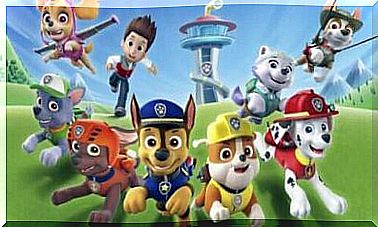Author Children: 12 Strategies To Motivate Them

Author children show a very great interest in reading very early. This is where they find the foundation to start developing their own narratives. For this reason, one of the most important tips to motivate their writing is to encourage a love of literature.
We know that young children have an inexhaustible source of ideas and anecdotes that they draw from their imagination. This is exactly the raw material that needs to be taken advantage of to develop a capacity to capture ideas on paper.
Below you will find a few useful recommendations so that you can accompany your author children in their creative processes.
How do you stimulate author children to develop their abilities?
Give them different materials
Choose pencils with different shapes and colors, beautiful paper with different textures, markers and blackboards. As easy as this strategy sounds, it is an example of what we can do to help motivate young writers.
2. Create a space that is free of distractions
This allows children to concentrate 100% so they can hear their own ideas when they arise.
3. Help increase vocabulary in author children
Children need simple and direct instructions in their early years. As they begin to grow, you can begin to use more sophisticated terms to communicate with them.
Use e.g. Synonyms and new words when you talk to them. This will give them more tools to express their ideas.
4. Use writing in other subject areas
Describe math problems or scientific homework using words. This will help them see that anything can be written. In addition, author children can also practice using a diary where they tell about their daily experiences.

5. Ask the children to use writing in their daily lives
Ask them to send small notes to friends and family. Also, ask them to help write the shopping list or send an email. Thus, the child will understand that writing is an important and necessary skill.
6. Teach author children to enjoy different types of texts
Show them magazines, comics, history books, articles and hieroglyphs. Above all, non-conventional forms of writing help children see the value of communication and the universality of language.
7. Share their works with the family
Dedicate one evening each month to having an open mic session. Parents and children can read and share anything they have written at this monthly event.
8. Consider the interests of the children
If your child likes sports, let them read and write about their favorite football or tennis player. On the other hand, if they like music, make sure they can compose stanzas of a song.
9. Expose children of writers to classic works in a fun way.
We have always seen Don Quixote or The Odyssey as heavy books that are hard to understand. However, there are now versions for children that help them access these traditional works in a much more child-friendly way.
10. Stimulate creativity more than perfection and technique.
Especially in the early stages of writing, the idea is more important than the linguistic form of the message.
11. Find a way to showcase something your child has worked on.
It could be in the school newspaper or on the refrigerator door at home, for example, children are happy to know that others are reading what they write. First, give them the security to write and only later correct grammatical and syntax errors.

12. Play word games
Make words that do not exist and invent fictional situations. Then ask the children to give a reaction or elaborate on your examples. Finally, validate their contributions and ideas and praise their creativity.
Finally, author children need help and motivation to fully develop their skills. Get involved in this process and help them build the very important habit of writing in daily and academic life.
If you help write in a fun activity for the little ones, it does not feel like a boring commitment for them in the future.









